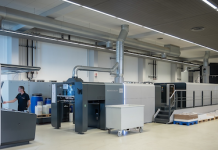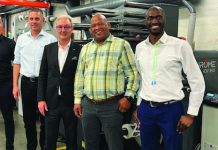In recognising the impact of print production processes on natural resources, responsible business practices are a top priority at Novus Holdings, formerly known as the Paarl Media Group.
In taking the lead in the South African print industry through the implementation of stringent environmental policies, the Group’s print division, Paarl Media, prides itself on applying responsible paper sourcing practices.
Paarl Media KwaZulu-Natal (KZN) has recently been awarded the coveted PEFC™ Chain of Custody certification (PEFC™ CoC). This accolade assures customers that Paarl Media KZN makes use of core paper stocks procured from certified forests. The certification is also currently available at Paarl Media Cape and Paarl Media Paarl.
The Programme for Endorsement of Forest Certification (PEFC™) is an international non-profit, non-governmental organisation dedicated to promoting Sustainable Forest Management (SFM) around the world. It is the world’s largest forest certification system that represents more than 260 million hectares of certified forests. This is an area equivalent of the size of France, Germany, Italy, Spain, Sweden and the UK combined.
Peter Metcalfe, Group Executive of Sales at Novus Holdings said, ‘As a responsible corporate citizen, we are dedicated to delivering the highest quality with the least impact on the environment. We differentiate ourselves as the leading environmental stewards within the printing industry and are determined to maintain this standing as we plan to achieve applicable certifications at all our plants in the coming future.’
Novus Holdings continues to champion cleaner practices by investing in initiatives and technologies to reduce emissions and waste output.
Paarl Media was the first African printing organisation to receive the globally recognised FSC® (Forest Stewardship Council®) FSC-C022948 CoC (Chain of Custody) certification. The FSC® trademark identifies forests which have been certified in accordance with the rules of the Forest Stewardship Council®. These forests have to be managed to meet the social, economic, ecological and cultural needs of present and future generations.





















